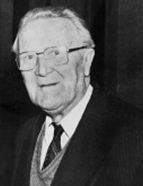

His extensive historiographical output demonstrates his rigour and keen analytical skills, particularly in the study of Portuguese expansion and empire. His research covered religious, political, and cultural history, as well as technical subjects such as cartography and nautical science, which were of particular interest to him. In the realm of modern history, Bourdon also authored several works that examined and assessed the penetration of Humanism in Portugal. Among his notable subjects was Jerónimo Osório (1506–1580), who attracted his special attention. Drawing on unpublished documentation, Bourdon published six articles on Osório, in both French and Portuguese. Highlights include Le voyage de Jerónimo Osório, évêque de Silves, en Italie (1576-1577) , published in 1951, and Novas investigações sobre a viagem de Jerónimo Osório à Itália [New Enquiries into the Journey of Jerónimo Osório to Italy] (1576–1577), which followed the next year. Another significant contribution was his attempt to summarise the history of Humanism in Portugal in O Humanismo e as suas relações europeias [Humanism and Its European Relations] (1959).
From the 1970s onward, Bourdon extended his focus to the history of Portugal during the first quarter of the 19th century, particularly studying the influence of the Enlightenment on the country. The career of Abbot José Correia da Serra (1750–1823) was the subject of rigorous research by Léon Bourdon, culminating in the exhaustive volume José Corrêa da Serra, ambassadeur du Royaume-Uni du Portugal et du Brésil à Washington (1916-1820) . In the final phase of his career, Bourdon embarked on a new line of research in contemporary history, this time focusing on Brazil at the end of the colonial period. One figure, in particular, caught his attention: the French economist and industrialist Louis François de Tollenare (1780–1853). Bourdon published previously unpublished texts relating to Tollenare’s time in Portugal and Brazil. These were compiled into a critical edition entitled Notes Dominicales de L.F. de Tollenare, prises pendant son voyage en Portugal et au Brésil en 1816, 1817, 1818 , released in three volumes with extensive commentary and annotations. In addition to these contributions, which form a bibliography of forty-five titles, Bourdon’s role as an indefatigable editor of the Bulletin des Études Portugaises is also noteworthy. Established in Coimbra in 1931, the journal was renamed Bulletin des Études Portugaises et Brésiliennes in 1972. Bourdon published thirty-nine critical reviews in Portuguese in this journal until the late 1970s. The Bulletin was published by the Instituto Francês in Lisbon, where Bourdon served as director—a role previously emphasised. As part of these responsibilities, he also directed the Boletim do Instituto Francês de Portugal , contributing twelve additional critical reviews, all written in French and published in 1932. Finally, it is worth emphasising that the historian's contributions to the two bulletins were not limited to the areas of research previously mentioned. French and Portuguese literature, spanning from the Middle Ages to the 20th century, also captured the curiosity and attention of this intellectual, who was deeply passionate about the history and culture of Portuguese-speaking worlds. His entire career, both institutional and academic, reflected his unwavering determination: to establish Portuguese studies as a permanent feature of French universities while simultaneously safeguarding the longstanding prestige of French culture in Portugal. The author of a substantial and influential body of work, Léon Bourdon was, alongside Charles Boxer, one of the foremost foreign experts on Portuguese maritime expansion throughout the second half of the 20th century, making a significant contribution to Portuguese-French historiography.
This work is financed by national funds through FCT - Foundation for Science and Technology, I.P, in the scope of the projects UIDB/04311/2020 and UIDP/04311/2020.
